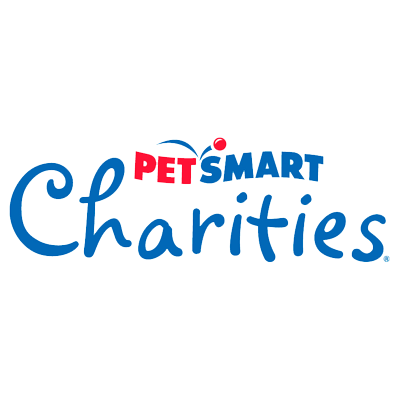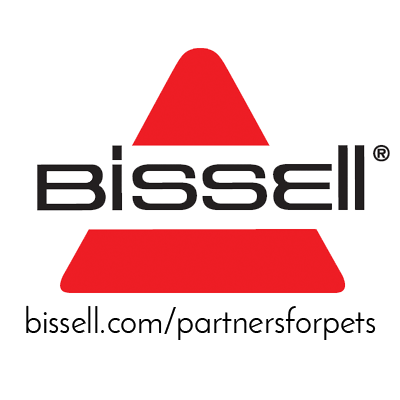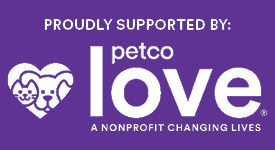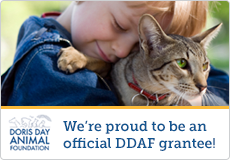Our Programs
Our mission is to improve the lives of dogs and cats across North Carolina and reduce the number of dogs and cats that suffer and die both inside and outside of animal shelters.
To do this we have to:
- reduce the birth of unwanted puppies and kittens
- help families by having programs available such as pet food pantries, vaccination clinics, etc..
- remind friends, family and co-workers to visit local animal shelters if they are looking to adopt a new pet or have lost their pet
- donate to local animal welfare agencies such as pet food pantries, shelters, spay/neuter agencies, etc.
- fix your own pets as early as 4 months of age to prevent ‘surprise litters’
- ensure your community has local animal ordinances that protect people and animals and that they are enforced
Our programs include the following:
Spay/Neuter
To reduce the birth of unwanted puppies and kittens, we must have high quality, affordable spay/neuter programs which:
- Are available for anyone to use regardless of their income
- Include spay/neuter and vaccination of feral and unowned cats
- Provide high quality surgeries and post-surgical care
- Are affordable and easy to use
- Are advertised and readily available so anyone who wants to fix their pet knows who to call
- Ensures all animals adopted from the shelter are spayed/neutered
- Offers free spay/neuter surgeries for families turning animals into the shelters so they can fix any unaltered pets they still have at home
- Offers free spay/neuter surgeries for families who own dog breeds who are over-bred, such as hounds, pit bulls, etc.
Pet Retention
Keeping pets in their home with their family is a must. Providing services such as free pet food, routine veterinary care including vaccinations or emergency veterinary care helps maintain the bond between a pet and their owner. Pet retention includes:
Pet Food Pantry
Sometimes families are between jobs, have a major illness, or are unable to work. Often they simply need a few bags of food until pay day. Whatever the reason, helping these families improves the chances of their pet remaining with them. In addition, it is crucial to help pet owners maintain a manageable number of pets by providing free spay/neuter surgeries for animals already in their care.
Emergency Veterinarian Care
Imagine living on $800 a month and your pet becomes ill or injured. The initial cost could be more than a family could afford. Sadly, an owner might be faced with the difficult decision to take their pet to the shelter or have them euthanized. An Emergency Veterinarian Care program gives low-income families access to vet care at critical time.
Routine Veterinarian Care
Routine care, including low-cost rabies vaccination or microchip clinics or access to free flea/tick or worming medication keeps pets happy and disease free.
Adoption & Transport
There will always be dogs and cats in animal shelters, but making sure they get out quickly is KEY to keep them from being euthanized. Rescue groups, humane societies and shelters must take an active role in marketing and advertising the animals they have available for adoption. They must take advantage of adoption events held by agencies such as Petco, PetSmart and other venues such as OctoberFest, Paws in the Park, etc..
While many of us shy away from going to animal shelters for fear we will ‘want to take them all’ — don’t let this be an excuse. Many people also assume animals at the shelter are there because they are ill or have behavior issues. Shelters work hard to screen animals in their adoption programs to make sure they would be companions. Many animals are in foster homes too, so the foster family can share the pluses and minuses the dog or cat might have.
There are many reputable shelters and rescue groups both inside and outside of North Carolina that want to pull dogs and cats from NC animal shelters since we seem to have a surplus. Many dogs and cats transported outside of North Carolina are spayed or neutered and fully vetted before they leave so there is no delay in getting the pet to their new family.
Animal Control
North Carolina has several state-mandated animal ordinances that each county must enforce such as mandatory rabies vaccinations, reporting animal bites, etc.. Many counties in North Carolina also have local animal ordinances more specific to their communities. To enforce both state and local animal ordinances, some counties use deputies or police officers while some have a separate department called Animal Control.
Unfortunately, there are counties and communities in North Carolina that have no Animal Control organization nor any local animal ordinances. This leaves both the people and pets in a community or county disadvantaged. It is important for residents to reach out to their local government, Sheriff or Police Departments to ensure their community has local ordinances and enforcement.
Dog and Cat 101
Most dog and cat owners have experienced issues with their pets. Barking, biting, not using a litter box, scratching furniture, etc.. While the internet is a good resource to research issues, sometimes having someone to communicate with is better. Frustration with a pet can lead to the pet being given away, abandoned or taken to a shelter.
Many pet issues can be resolved without the family having to give up the pet. Free or low-cost dog training can get a dog or puppy back on track. Learning what to do when a cat refuses to use a litter box can mean the difference between a cat being an ‘inside’ or ‘outside’ cat or worse.
Imagine a pet living with a family for months and suddenly finding themselves in a cage, new smells and surrounded by strangers. Reach out for help if your pet is making you crazy. Call local rescue groups, animal shelters, your veterinarian or CPPI. More often than not, the solution is simple and there is nothing we cannot accomplish together.




